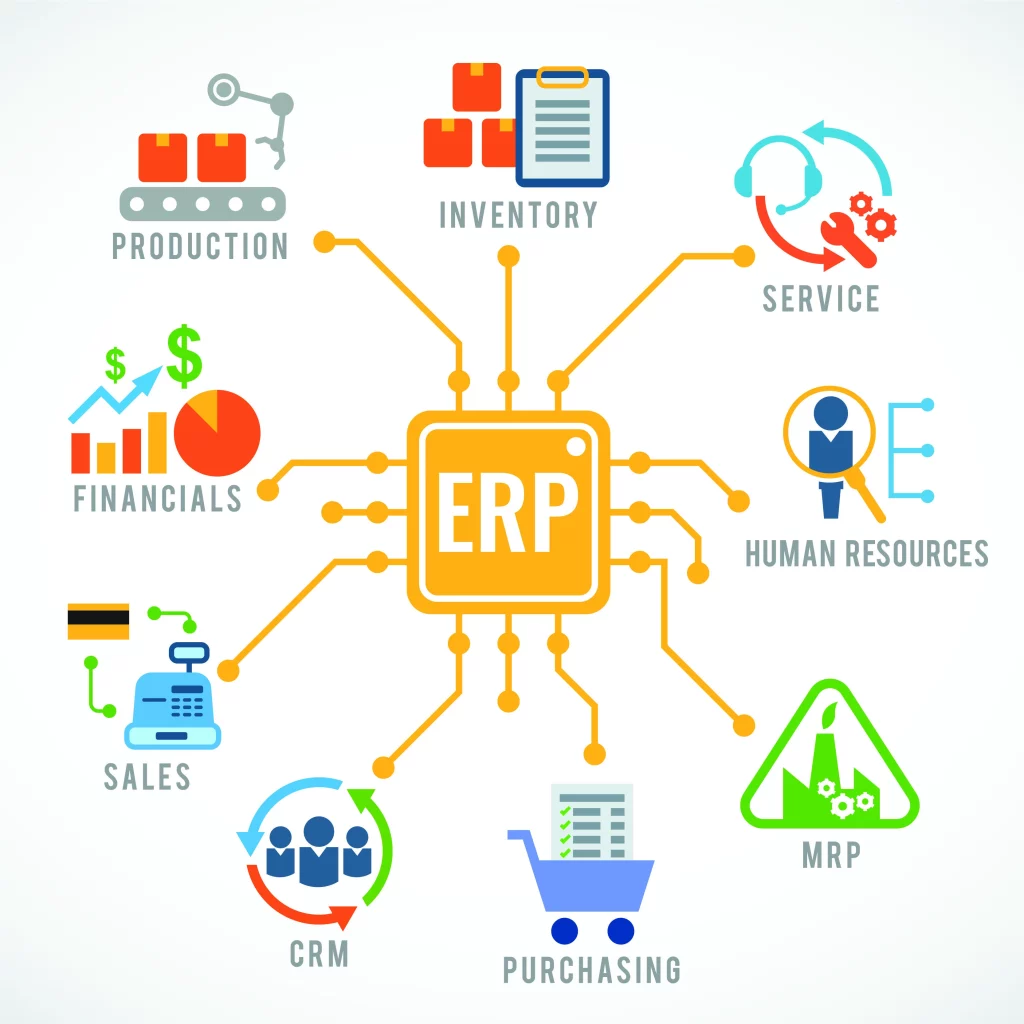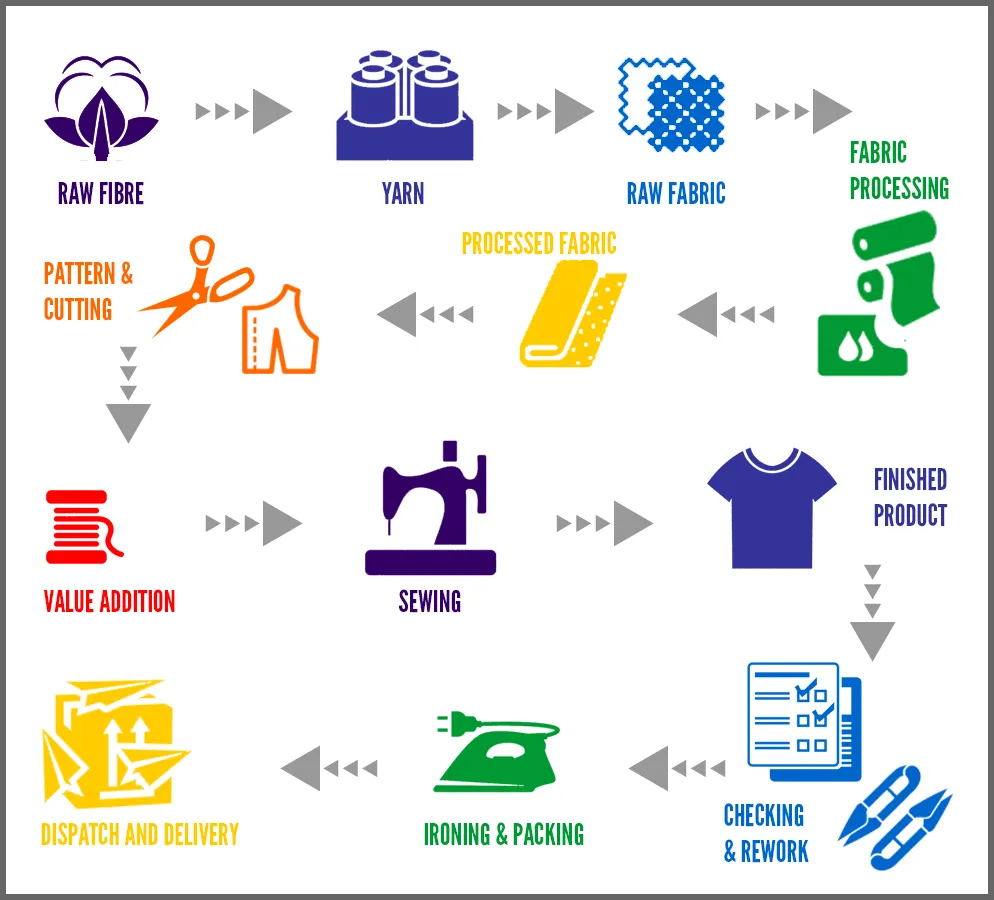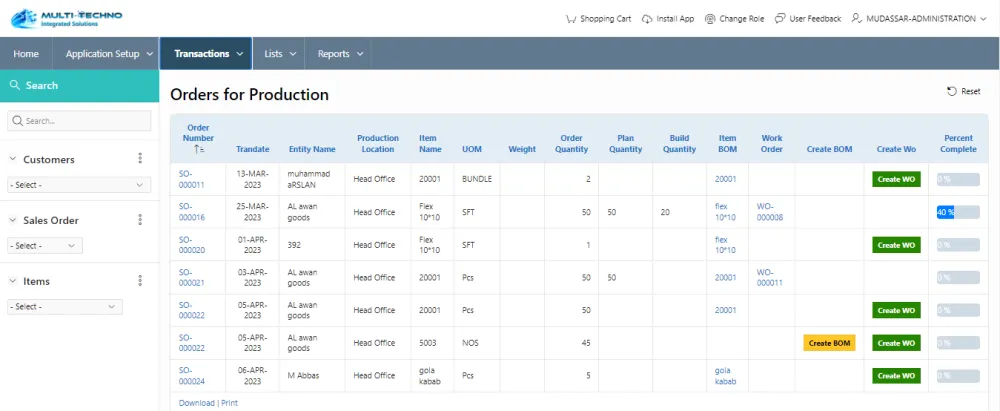Multi-Techno Integrated Solution
Textile Industry
Multi-Techno ERP for your growing needs in the textile industry! Textile sector growth strategies for businesses,
Sustainable practices in the cloth industry, Apparel and textiles supply chain optimization
The Role and Benefits of ERP Software in the Textile Industry
The textile industry is a cornerstone of Pakistan’s economy, significantly contributing to employment and exports. However, the industry faces immense challenges, including intense global competition, supply chain complexities, and operational inefficiencies. To navigate these challenges and drive growth, many textile manufacturers are turning to Enterprise Resource Planning (ERP) software. This article explores the pivotal role of ERP software in the textiles industry, highlighting its benefits and future trends.
Challenges Faced by the Textile Industry
The textiles industry in Pakistan faces intense competition in the global market, particularly from countries with lower labor costs. Supply chain complexities, including sourcing raw materials, managing inventories, and coordinating with multiple stakeholders, pose significant challenges. Operational inefficiencies exacerbate these issues, leading to delays, errors, and increased costs.
- Challenges and Opportunities in the industry
- Development of the textile industry of Pakistan
Role of ERP Software in Addressing Challenges
- ERP software streamlines production processes, optimizing resource utilization.
- Advanced inventory management capabilities minimize carrying costs.
- Enhanced supply chain visibility improves stakeholder coordination.
- ERP solutions lead to smoother operations and enhanced customer satisfaction in Pakistan’s textile industry.
Benefits of ERP Software in the Textile Sector
The implementation of ERP software offers numerous benefits to textile manufacturers. Firstly, it enhances operational efficiency by automating routine tasks and providing real-time insights into production processes. This leads to faster decision-making and improved responsiveness to market demands. Additionally, ERP systems enable cost reduction through better resource allocation and inventory optimization. ERP software integrates various departments and functions, promoting organizational collaboration and synergy and driving overall productivity and profitability.
- ERP software for home textiles
- ERP software for spinning mills
- ERP software for weaving mills
- ERP software for Textile Management Systems
- ERP software for textile processing plants
- ERP Software for Cotton Textile Industry


Successful Implementation of ERP Software
Several success stories demonstrate the transformative impact of ERP software on the textile industry in Pakistan. Companies that have embraced ERP solutions have reported significant improvements in operational efficiency, cost savings, and customer satisfaction. Key factors contributing to successful ERP implementations include top management support, employee training, and alignment with organizational goals. Moreover, selecting the right ERP vendor and customizing the software to meet specific industry requirements are critical for successful adoption.
Future Trends and Innovations
The future of ERP software in Pakistan’s textile sector is promising, with emerging technologies such as artificial intelligence (AI), the Internet of Things (IoT), and blockchain expected to drive innovation. These technologies can optimize production processes further, enhance supply chain visibility, and enable predictive analytics for better decision-making. As the industry continues to evolve, textile manufacturers must stay abreast of these developments and leverage ERP software as a strategic tool for sustainable growth.
In conclusion, ERP software has become indispensable for the textiles industry in Pakistan, offering a comprehensive solution to address challenges and drive growth. By streamlining operations, optimizing resources, and enhancing decision-making, ERP systems empower textile manufacturers to stay competitive in the global market. As technology advances, adopting ERP software will play a pivotal role in shaping the future of Pakistan’s textile industry.

FAQs:
What is ERP software, and how does it benefit the textile industry?
ERP software integrates various business processes, such as production, inventory management, and supply chain, into a centralized system, improving efficiency and productivity in the textiles industry.
How can textile manufacturers ensure successful ERP implementation?
Successful ERP implementation requires top management support, employee training, careful vendor selection, and customization to meet industry-specific needs.
What are some emerging technologies expected to impact the future of ERP in the textile sector?
Technologies such as Artificial Intelligence, the Internet of Things, and Blockchain are expected to drive innovation in ERP systems, enabling predictive analytics and enhanced supply chain visibility.
What are the critical challenges faced by the textile industry in Pakistan?
The textiles industry in Pakistan faces challenges such as global competition, supply chain complexities, and Operational Inefficiencies, which can be addressed by adopting ERP software.
How can ERP software help textile manufacturers reduce costs?
ERP software enables cost reduction through better resource allocation, inventory optimization, and automation of routine tasks, leading to improved profitability in the textile industry.
Our Satisfied Clients
























About Us
ERP software and systems are designed and implemented by Multi-Techno, a registered company. By combining data from financials, sales, CRM, inventories, and operations, businesses can increase productivity, make better decisions, and increase profitability with the aid of our ERP System, a single, integrated software platform.
Quick Links
Contact Us
Office # 100, 101 Second Floor Kohinoor 1, Faisalabad, Pakistan
